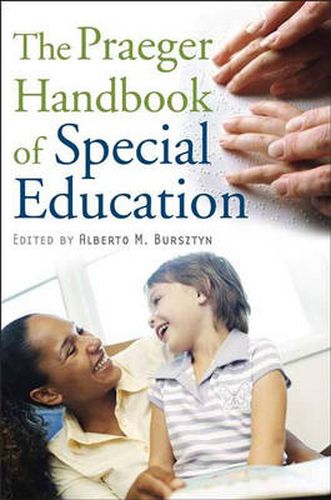Readings Newsletter
Become a Readings Member to make your shopping experience even easier.
Sign in or sign up for free!
You’re not far away from qualifying for FREE standard shipping within Australia
You’ve qualified for FREE standard shipping within Australia
The cart is loading…






This book introduces readers to key concepts and issues in the evolving field of special education. Arguably, over the past thirty years, no other area of education has been as radically transformed as the provision of services to children with disabilities. Since the mid 1970s, special education has steadily grown to reach fully 12% of the U.S. student population in grades K-12, and millions of children from birth to age five. Despite its promise of equal access, special education has become a controversial field in many respects. Critics point to its high cost, questionable pedagogical effectiveness, and differential outcomes across localities, family income levels, and ethnicities. The more typical approach in the literature highlights the legal and procedural mandates that dominate the discourse on educating the disabled student, but fails to explore the underlying assumptions and inconsistencies that make this area of education a controversial and still unsettled enterprise. This handbook departs from the traditional books in the field by focusing on the ways that special education policies and practices are enacted, rather than highlighting only their intended outcomes. Contributors to this text focus on defining commonly used terms and professional jargon in order to give interested readers access and insight into the field of special education and its associated practices.
Some of the subjects included in this volume are the history of special education, disability and society, law and special education, pedagogy, policies and practices, and research in special education.
$9.00 standard shipping within Australia
FREE standard shipping within Australia for orders over $100.00
Express & International shipping calculated at checkout
This book introduces readers to key concepts and issues in the evolving field of special education. Arguably, over the past thirty years, no other area of education has been as radically transformed as the provision of services to children with disabilities. Since the mid 1970s, special education has steadily grown to reach fully 12% of the U.S. student population in grades K-12, and millions of children from birth to age five. Despite its promise of equal access, special education has become a controversial field in many respects. Critics point to its high cost, questionable pedagogical effectiveness, and differential outcomes across localities, family income levels, and ethnicities. The more typical approach in the literature highlights the legal and procedural mandates that dominate the discourse on educating the disabled student, but fails to explore the underlying assumptions and inconsistencies that make this area of education a controversial and still unsettled enterprise. This handbook departs from the traditional books in the field by focusing on the ways that special education policies and practices are enacted, rather than highlighting only their intended outcomes. Contributors to this text focus on defining commonly used terms and professional jargon in order to give interested readers access and insight into the field of special education and its associated practices.
Some of the subjects included in this volume are the history of special education, disability and society, law and special education, pedagogy, policies and practices, and research in special education.